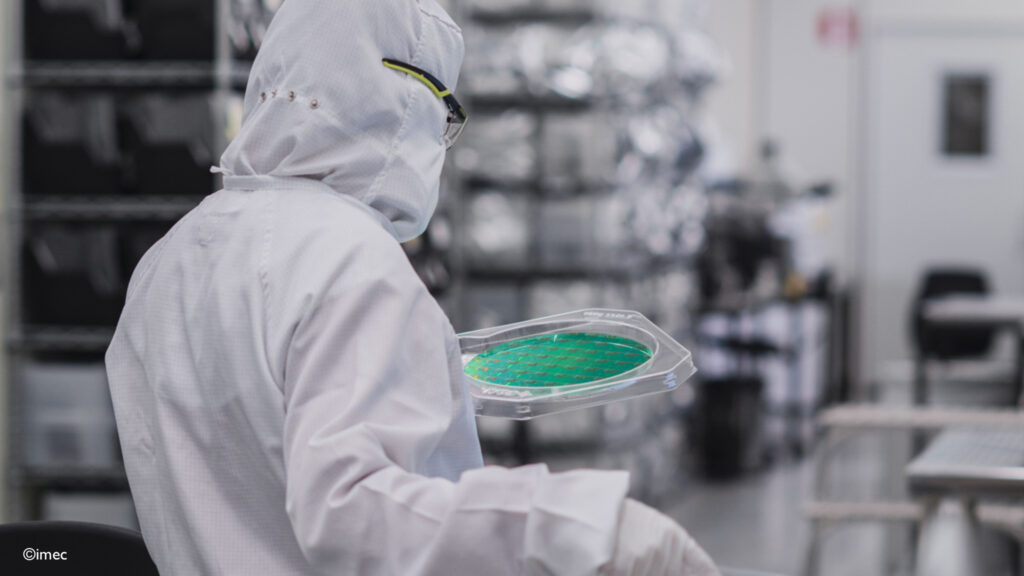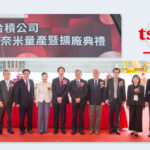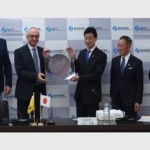ASIA ELECTRONICS INDUSTRYYOUR WINDOW TO SMART MANUFACTURING
GF, Samsung, TSMC Join Imec's SSTS Program
Imec, a world-leading research and innovation hub in nanoelectronics and digital technologies, announced expansion of its Sustainable Semiconductor Technologies & Systems (SSTS) program. Particularly, imec announced GlobalFoundries, Samsung Electronics, and TSMC have joined imec’s research program.
Launched in 2021, the SSTS program rallies stakeholders from across the semiconductor industry – including systems companies, (equipment) suppliers, and now also three of the world’s leading semiconductor foundries – to help reduce the ecological impact of the IC value chain.
Brings in Entire Semiconductor Ecosystem
In response to mounting concerns about climate change, tech companies around the world are accelerating the efforts to complete carbon neutrality for their supply chains and products. The semiconductor industry recognizes its pivotal role in this endeavor. Studies have found, for instance, that almost 75 percent of mobile devices’ CO2 emissions can be traced back to the underlying manufacturing process – with chip production being responsible for nearly half of that footprint. Against this backdrop, the SSTS program provides detailed information on the environmental impact of choices made during semiconductor technology’s definition phase.

Luc Van den hove, CEO of imec: “SSTS’ success hinges on the active involvement of players from across the IC value chain. Hence, I am delighted to announce that GlobalFoundries, Samsung Electronics, and TSMC, have now entered the program. Following the earlier enrollment of renowned systems companies such as Google, Amazon, Apple, Meta and Microsoft, our new core program partner Rapidus, and equipment suppliers including Applied Materials, ASML, Edwards, Kurita, SCREEN and Tokyo Electron, we have reached an important milestone in effectively bringing together the entire semiconductor ecosystem.”
“By benchmarking our models at GlobalFoundries, Samsung Electronics, and TSMC, we will be able to further refine and optimize the imec.netzero tool, the web application that is at SSTS’s very heart and that allows us to assess energy consumption, water/mineral usage, and greenhouse gas emissions associated with the various aspects of chip making. In the longer term, the partner program will also develop recommendations on how to improve the ecological footprint of chips by suggesting novel processes and technology optimizations,” added Lars-Åke Ragnarsson, the program director of SSTS.

Partners in Developing Innovative Technologies
“As part of GF’s longstanding commitment to environmentally responsible manufacturing and operations, we are constantly looking for new ways to minimize our impact on the environment. This includes enhancing manufacturing emission controls, further improving energy efficiency, sourcing renewable and lower-carbon energy, and engaging through key partnerships including imec’s SSTS program,” said Stacey Barrick, head of global ESG at GF. “As the first semiconductor manufacturer to join the SSTS, we look forward to partnering with imec and others in the semiconductor ecosystem and helping develop innovative technologies that drive change across the entire supply chain in a holistic, meaningful way.”
“Our commitment to imec’s SSTS program stems from Samsung Electronic’s firm belief that we should not solely focus on meeting the mere technical requirements of the semiconductor industry. Being one of the world’s top foundries and memory supplier, we want to lead the way in developing innovative technologies that ensure the preservation of our planet for generations to come. Teaming up with imec and the other SSTS partners allows us to translate this commitment into tangible actions,” said Dooguen Song, Executive Vice President of the Environment, Health and Safety (EHS) Center at Samsung Electronics.




